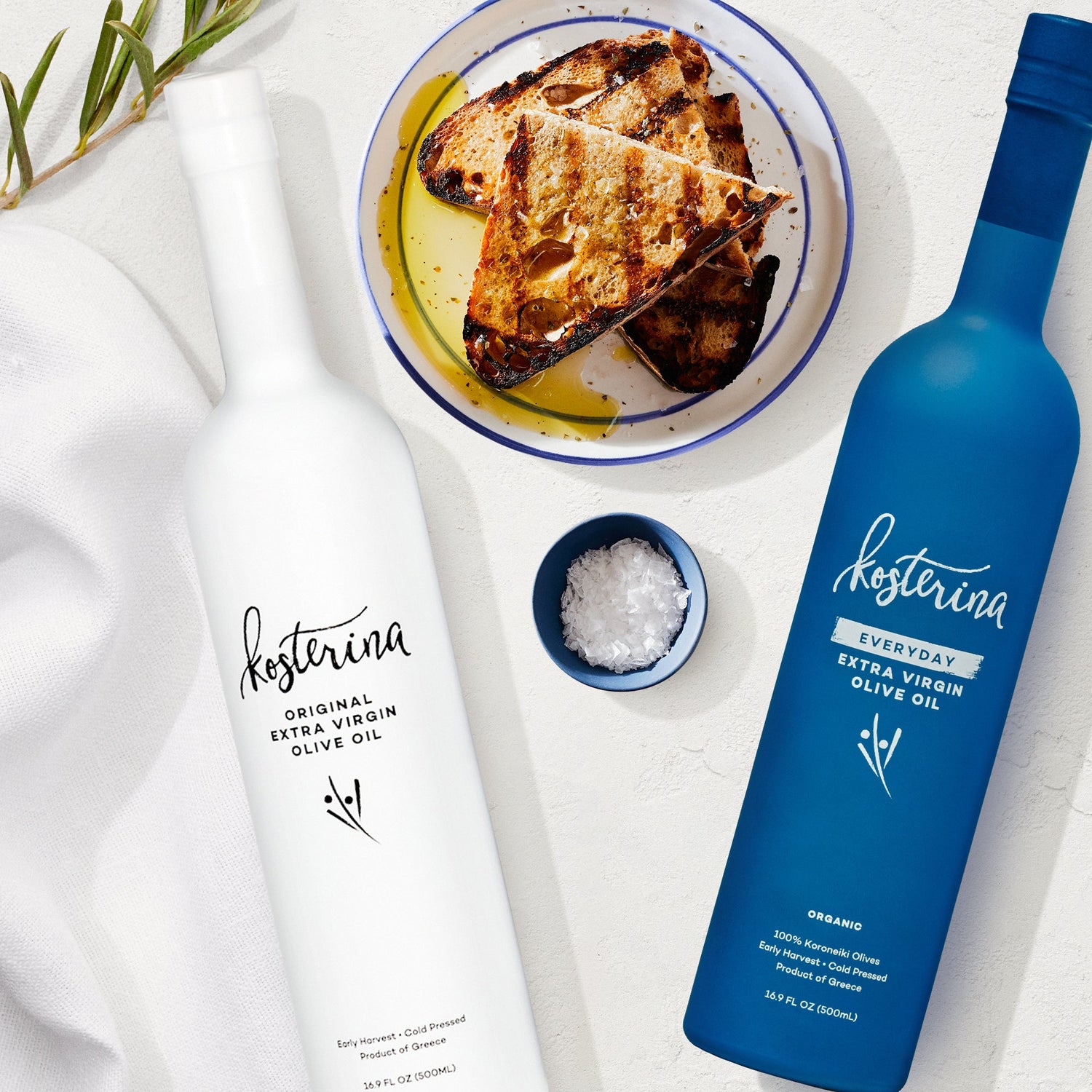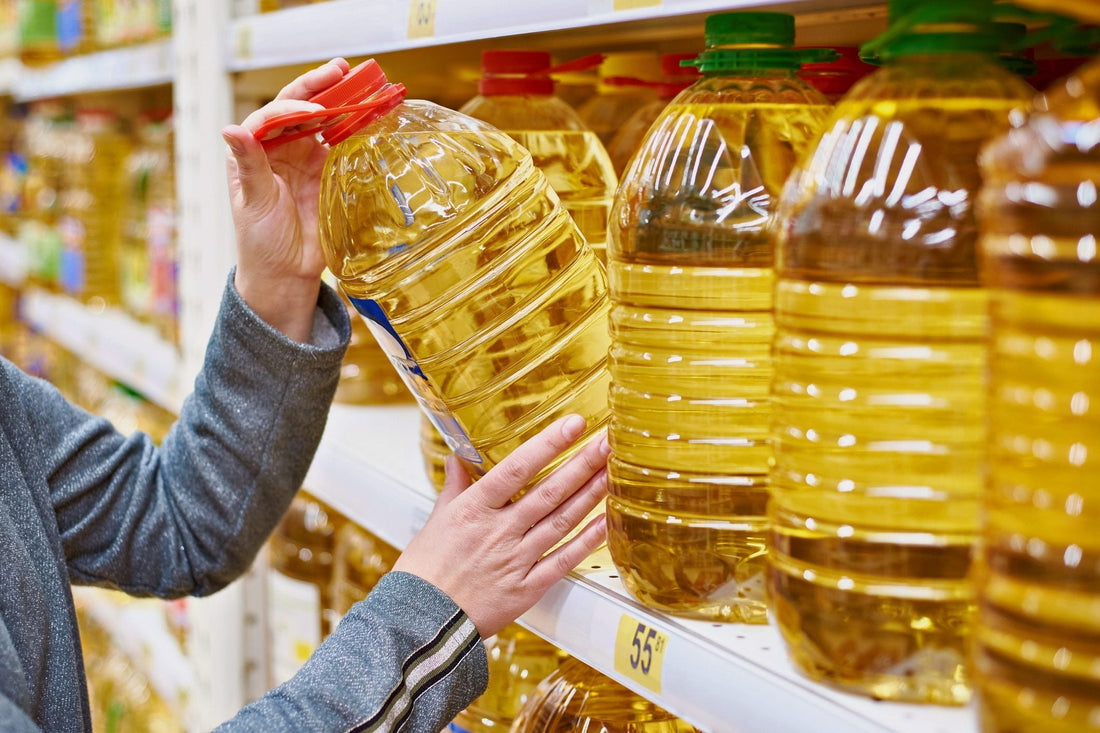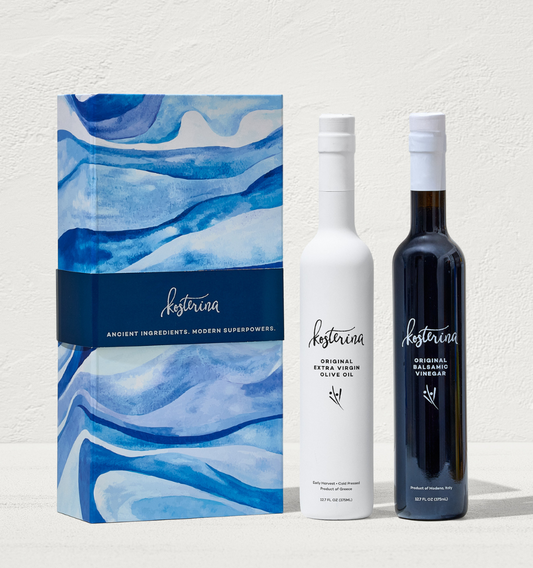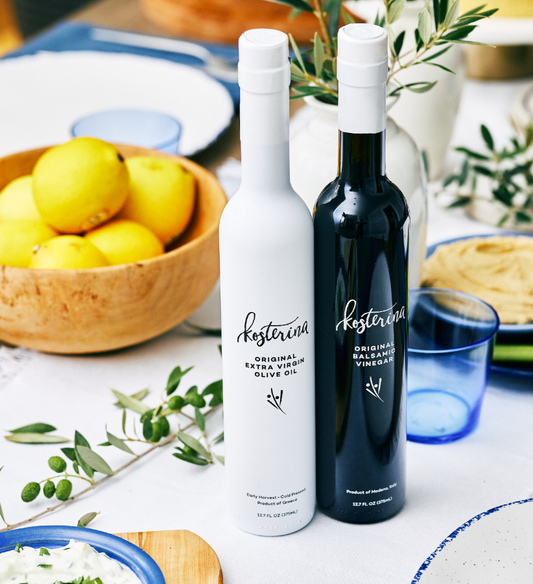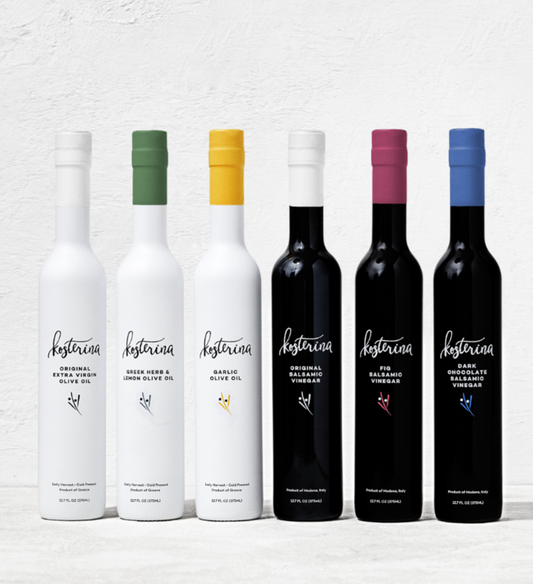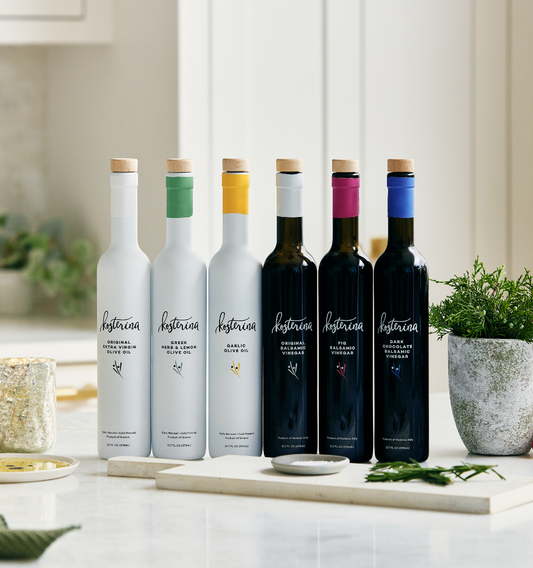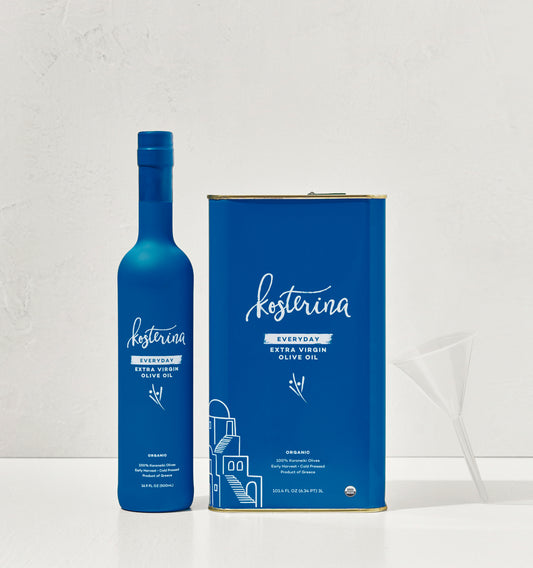If you have canola oil in your pantry, please throw it away.
This is a controversial stance as some in the food community say that there is not enough hard scientific evidence to prove that canola oil is harmful. But from everything we’ve heard and read, canola and other seed oils are highly inflammatory and toxic to the body. If you’re not sure, just watch this video of how canola oil is made and we think you’ll come to the same conclusion.
While historically canola oil was touted as a healthy choice for cooking, there’s more to the story that you should know. Not surprisingly, any potential health benefits of canola oil are quickly diminished by the extensive processing and refining it undergoes. Dr. Cate Shanahan, a family physician and nutrition expert, says that “avoiding seed oils (read: canola oil) is the best thing you can do for your health.”
Pro Tip: On the Kosterina team, we’ve quickly adopted the use of the Seed Oil Scout, an app which helps to identify restaurants that avoid seed oils in all their cooking.
So How Is Canola Oil Made?
Canola oil is derived from the seeds of the canola plant, a variety of rapeseed. Rapeseed is a flowering plant that's a member of the Brassica family, including broccoli and cabbage. Sounds good so far, right? The canola plant was first created by scientists in the early 1970’s through cross-breeding so most canola plants today have been genetically modified. To give you some context, over 90 percent of the Canadian Canola Oil crop was genetically engineered as of 2009. If that isn’t concerning enough, the way it’s made is where things get a bit scary:
- Harvesting and Cleaning: The seeds are harvested and cleaned to remove impurities.
- Crushing: The cleaned seeds are crushed to extract the oil. (This part is ok, that’s what we do with olive oil too).
- Solvent Extraction: To squeeze out even more oil, the crushed seeds are treated with a solvent, usually something like sodium hydroxide or hexane (corrosive chemicals that are used to declog drain pipes and can literally burn through skin!)
- Refining: The oil undergoes a refining process that includes degumming, bleaching, and deodorizing to improve its appearance, flavor, and shelf life.
How can this be safe for us to consume?
The Health Concerns
Peter Attia, MD, a physician focusing on longevity and optimal health, has expressed concerns about the high levels of omega-6 fatty acids in canola oil. "The ratio of omega-6 to omega-3 fatty acids in the diet is crucial," says Dr. Attia. "An excess of omega-6 can promote inflammation, which is linked to chronic diseases such as heart disease and cancer" In other words, too much omega-6 can be a problem.
So, that bottle of canola oil in your kitchen is not doing you any favors.
Additionally, the refining process of canola oil often involves high heat and chemical treatments that can degrade its nutritional quality. In her book Deep Nutrition, Dr. Shanahan points out that "the refining process strips canola oil of beneficial nutrients, and the high heat used in processing can create trans fats, which are harmful to heart health," she says. So, while it might look clean and pure, a lot of the nutritional benefits are lost along the way.
The Bottom Line
Between the high levels of omega-6 fatty acids, the heavy processing, and the potential for trans fats, canola is not the best choice for your long-term health.
You can count on Kosterina to provide you with all you need for healthy cooking and baking. Our ultra-premium Original EVOO, it’s also made from 100% Koroneiki olives harvested early in the season which preserves their naturally occurring antioxidants. It has a polyphenol content of over 500 mg/kg as measured at the time of harvest-–over 10x the amount measured in your average bottle at the local supermarket. And our Organic Everyday Extra Virgin Olive Oil stands up to heat beautifully and is able to maintain its flavor with a smoke point of over 400° F, perfect for cooking and baking.
As Dr. Peter Attia puts it, "Choosing oils that are less processed and have a better omega-3 to omega-6 ratio can make a significant difference in reducing inflammation and promoting overall health." So, the next time you reach for cooking oil, it might be worth rethinking that canola oil and opting for something that’s better for your body.
Peace, Love & EVOO,
Katina and The Kosterina Team
